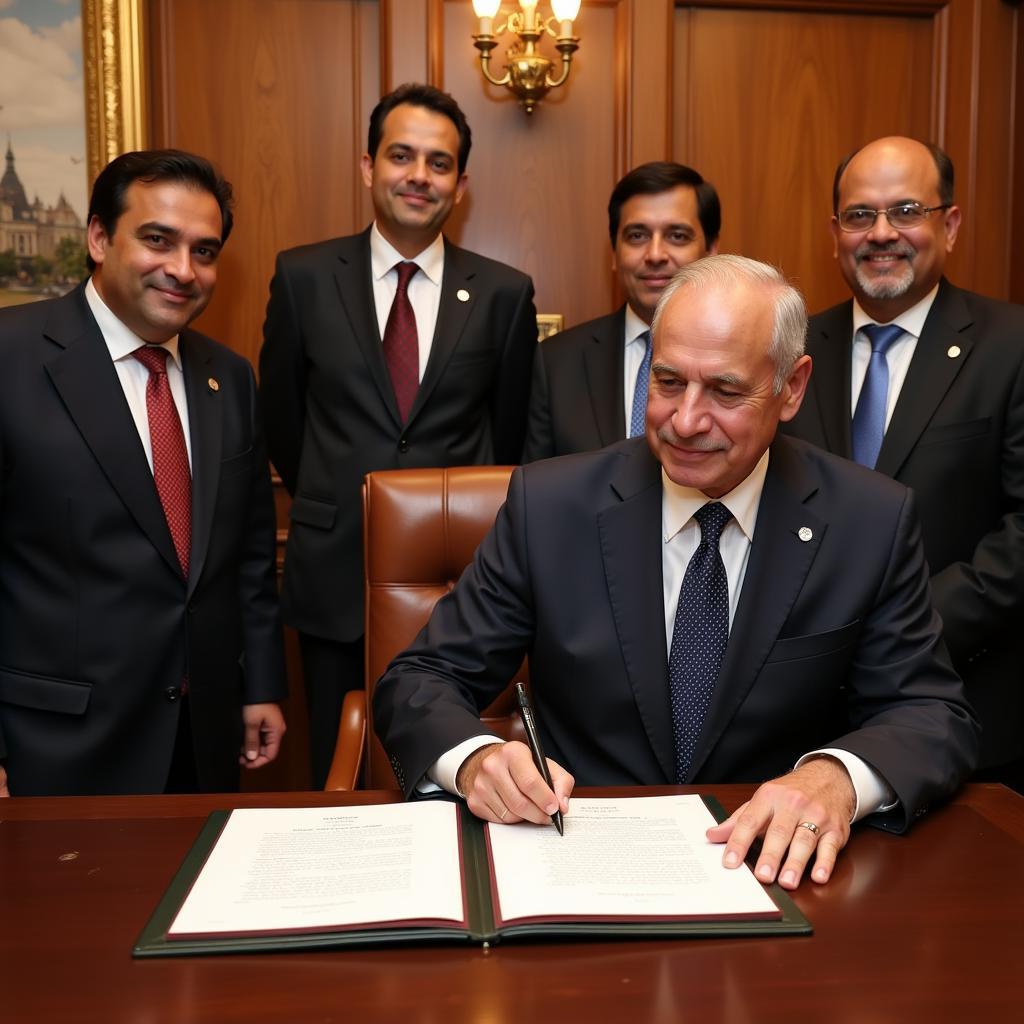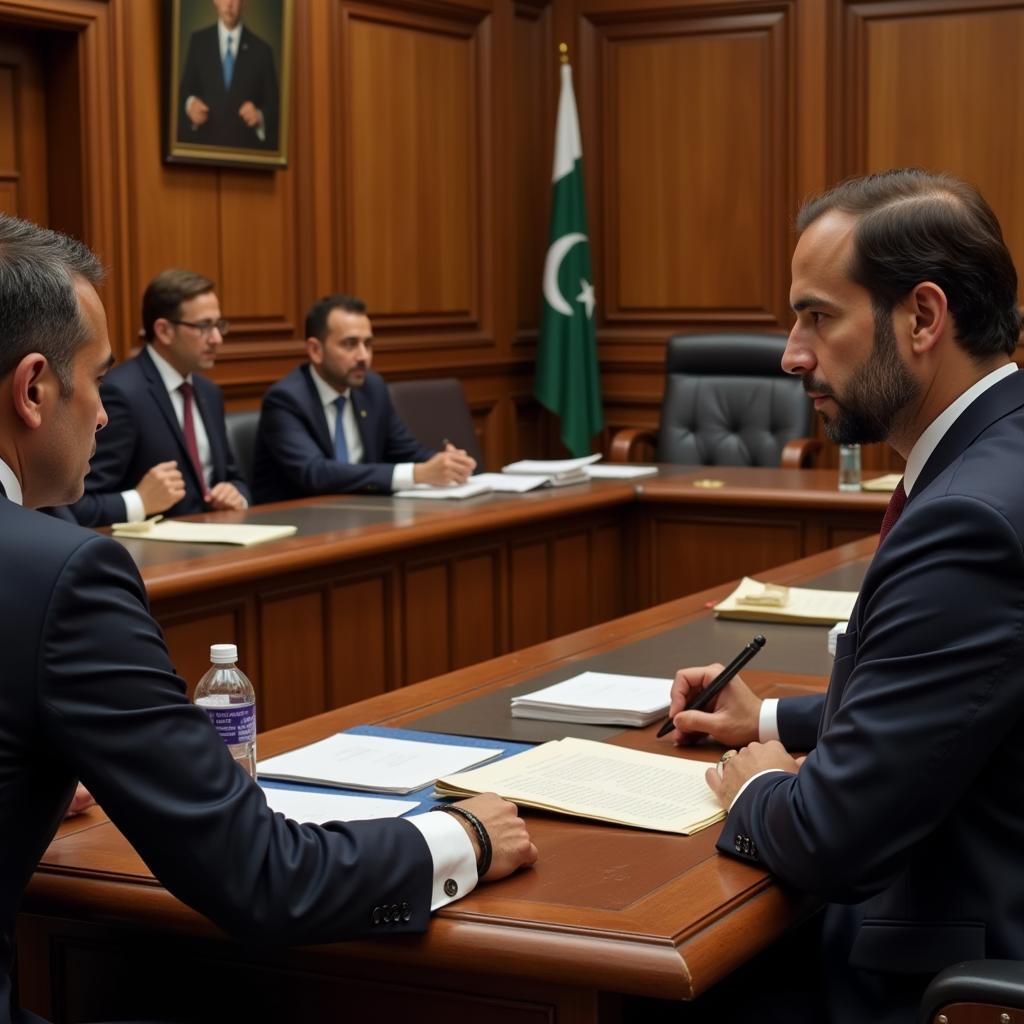External Law In Pakistan refers to the body of legal principles and rules that govern Pakistan’s interactions with other states and international organizations. It encompasses treaties, customary international law, and general principles of law recognized by civilized nations. This complex field plays a crucial role in shaping Pakistan’s foreign policy, trade relations, and its standing in the international community.
The Scope of External Law in Pakistan
External law in Pakistan covers a wide range of areas, including diplomatic relations, international trade, human rights, environmental protection, and the laws of war. It dictates how Pakistan engages with other countries, participates in international treaties, and resolves disputes. This involves navigating complex legal frameworks and upholding international obligations. Understanding this intricate web of laws is crucial for anyone involved in international business, diplomacy, or legal studies in Pakistan.
One key aspect of external law is the role of treaties. Pakistan is a signatory to numerous international treaties, which become binding upon ratification. These treaties cover diverse topics like trade agreements, human rights conventions, and environmental protocols. They place specific obligations on Pakistan, shaping its internal laws and policies. For example, Pakistan’s membership in the World Trade Organization (WTO) requires adherence to international trade regulations. Navigating these complexities is essential for legal practitioners and businesses operating in Pakistan.
The Role of Customary International Law
Customary international law, derived from the consistent practices of states over time, also forms a significant part of external law. These unwritten rules, often reflecting widely accepted norms of behavior, are as binding as treaty obligations. For example, the principle of diplomatic immunity, which protects diplomats from arrest or prosecution in foreign countries, is a well-established rule of customary international law. This area of law impacts the daily operations of embassies and consulates in Pakistan and abroad.
Another critical element is the influence of general principles of law recognized by civilized nations. These principles, often derived from domestic legal systems, provide a foundation for international law in areas where treaties or custom are silent. They contribute to a sense of legal order and predictability in international relations.  Signing of International Treaties in Pakistan
Signing of International Treaties in Pakistan
Challenges and Opportunities in External Law
Pakistan faces several challenges in implementing and upholding external law. These include capacity building within government agencies, ensuring compliance with international obligations, and navigating complex geopolitical landscapes. However, external law also presents opportunities for Pakistan. Engaging actively in international legal forums can enhance its influence on global issues, promote its interests, and contribute to the development of international law.
How External Law Impacts Domestic Legislation
External law often influences domestic legislation in Pakistan. Treaties ratified by Pakistan may require changes to existing laws or the enactment of new ones to ensure compliance with international obligations. This interplay between international and domestic law is a dynamic process, shaping the legal landscape of Pakistan. It requires a careful balancing act between national interests and international commitments.
The field of external law in Pakistan presents exciting career opportunities for aspiring lawyers, diplomats, and policymakers. Expertise in international law is increasingly in demand, as Pakistan navigates an increasingly interconnected world. Understanding the intricacies of external law is crucial for anyone seeking to contribute to Pakistan’s engagement with the international community.
“External law provides the framework for Pakistan’s interaction with the world,” says Dr. Ayesha Khan, a prominent international law expert based in Islamabad. “It is essential for Pakistan to have a strong understanding of these laws to protect its interests and contribute to a stable international order.”  Court Proceedings Relating to External Law in Pakistan
Court Proceedings Relating to External Law in Pakistan
Conclusion
External law in Pakistan is a complex and dynamic field that plays a vital role in shaping Pakistan’s engagement with the world. Understanding its intricacies is essential for anyone involved in international affairs. By effectively navigating the challenges and embracing the opportunities presented by external law, Pakistan can strengthen its position in the international community and contribute to a more just and peaceful world order.
FAQs
- What is the difference between external and internal law in Pakistan?
- How does Pakistan implement international treaties?
- What role does the Ministry of Foreign Affairs play in external law?
- How can I pursue a career in international law in Pakistan?
- What are some of the key challenges facing Pakistan in the field of external law?
- Where can I find more information on specific international treaties related to Pakistan?
- What is the impact of external law on businesses operating in Pakistan?
Do you have further questions? Feel free to contact us. For assistance, please contact us by phone at +923337849799, email us at news.pakit@gmail.com, or visit our office at Dera Ghazi Khan Rd, Rakhni, Barkhan, Balochistan, Pakistan. We have a 24/7 customer service team ready to assist you. You might also find useful information in our articles on diamond rate in pakistan, ethics of journalism in pakistan and llb fee structure in pakistan. Also, check out original diamond ring price in pakistan and posting transfer auditor general of pakistan for related information.